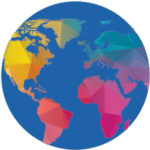Donor funds, when supporting the right efforts, can transform people’s lives and communities. The issues we focus on in this year’s High Impact Giving Guide are among the most challenging facing society, but the programs and organizations we profile demonstrate daily that positive impact can be created. More nonprofits making on global health

VillageReach
What It Does
Community health workers (CHWs) need a functioning health system around them to effectively deliver health services to vulnerable communities. For example, to reach remote communities with necessary vaccines, CHWs must have accurate estimates of vaccine doses needed, cold chain technology to keep vaccines at the right temperatures in tropical settings, and trained staff to manage and track supplies. These “supply chain logistics” are often difficult to manage in low-resource settings, which can result in
problems such as when clinics run out of supplies (“stockouts”) and lower vaccination rates. VillageReach works with ministries of health throughout sub-Saharan Africa to increase access to quality health services, with an emphasis on strengthening the “last mile” needed to connect rural and hard-to-reach communities to health resources. VillageReach addresses these and related challenges by supporting various features of local health systems that are vital to reaching vulnerable communities, such as:
Vaccine delivery systems: To help vaccines reach remote communities Mozambique, VillageReach designed a supply chain system for efficient managing, storing, transporting, and delivering of vaccines. This system improves aspects of the supply chain such as inventory management, use of data, and cold chain equipment to keep vaccines from spoiling. Today VillageReach helps more than 7.3 million doses of life-saving vaccines reach more than 900 health centers serving more than 18 million people.
Supply chain software: VillageReach leads the development of OpenLMIS, a web-based software used to manage supply chain data for 10,000 health facilities across seven countries. OpenLMIS provides supply chain managers with more real-time and more accurate data on the medicines needed in remote communities, which is then relayed back to higher levels of the supply chain (such as the national government) to help meet the demand.
Communications technology: VillageReach has partnered with the Malawi Ministry of Health and mobile carrier Airtel to expand a health advice hotline across Malawi. “Health Center by Phone” gives women of childbearing age, pregnant women, adolescents, and guardians of children under 5 years of age advice on a variety of health and nutrition topics, such as when to seek care for serious pregnancy symptoms. A text message system also sends text and voice message reminders about healthy behaviors and seeking health care.
How Effective It Is
An independent evaluation showed that system improvements in Mozambique lowered vaccine stockouts in VillageReach’s northern Mozambique pilot district and increased the coverage rate of diphtheria-tetanus-pertussis vaccine, a key childhood vaccine, from 69% to 95% between 2003 and 2008. VillageReach’s own analysis also found that the vaccine logistics system in this district was 21% less expensive per vaccine dose delivered than a comparison district with no transport or personnel resources dedicated solely to vaccine logistics. And one implementation of OpenLMIS found that frequency of stockouts dropped from 35% in 2013 to 22% by 2015.
How You Can Help
A donation of $100 gives 10 women health text messages throughout their pregnancies, and $2,500 can train 10 hotline workers in youth services; $10,000 provides a training for ministry of health officials on supply chain design and improvement. To donate any amount, visit the VillageReach website.
More Ways to Help — Last Mile Health helped build an effective system of community health workers in hard-to-reach areas of Liberia, which played a crucial role in responding to the recent Ebola crisis. In Migori County, Kenya, Lwala Community Alliance addresses the high HIV rate and other diseases such as malaria through a community health worker network and hospital staffed by Kenyan clinicians.
